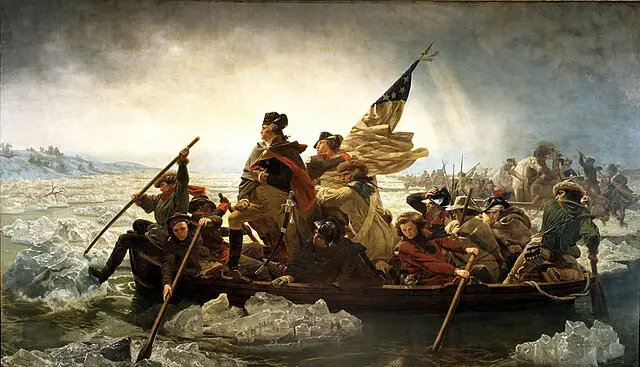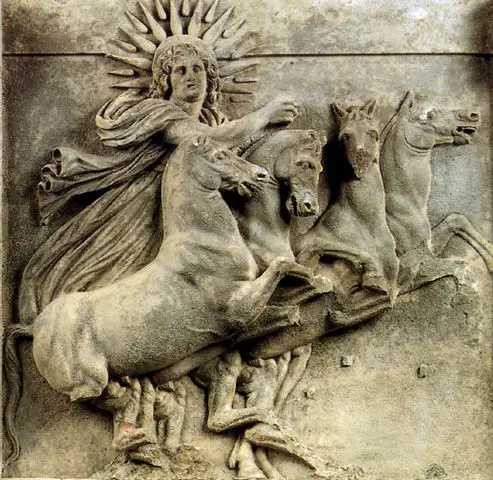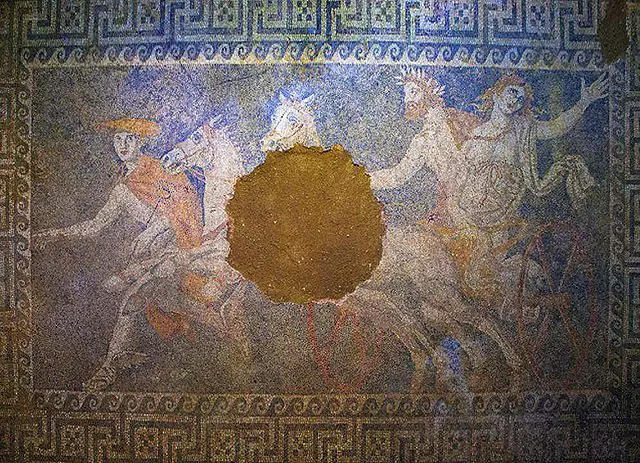| Further Reading | The 4 Most Important City-States Of Classical Greece |
The ancient Spartans are known for having all male citizens serve in the military from the age of 7 up through 60. After the age of 60 these Spartan citizens were no longer obligated to serve in the army and would ‘retire.’ Not many spartan warriors would live to see the age of 60 but if they did they could expect certin things from their ‘golden-years.’ Here is what the Spartan soldier would do once he retired.
After a Spartan served their nearly 53-year-long military term they would no longer be obligated to serve in the military. After the age of 60 male Spartan’s would instead teach, live in luxury, and spend more time dealing with the politics of the Spartan state.
If at the end you liked this article remember to sign up for the free newsletter and share around. Here at The History Ace, I publish helpful and easy to ready history articles. If you have an idea for an article then send me an email.
Here is an entire article going over what really happens after a spartan soldier retires.
Chances Of Spartan Warriors ‘Retiring’
It is important to remember that Sparta was a state that was always in a state of conflict. From the early age of 7 men would be whisked away from their parents to begin life in the Spartan army.
From 7 to around 20 young Spartan warriors would learn basic combat skills and how to live off the land. On top of this, they would be given light loads and hike throughout the mountainous countryside that surrounds Sparta. This was done to encourage young soldiers to build strong leg muscles and take care of their bodies. These hikes over the Peloponnese mountains are extremely hard but ancient sources such as Xenophon’s Anabasis detail that Greek (Spartan) soldiers who could complete these hikes were capable of extreme long-distance marches.
After several years of marching and training, the now adult 20-year-old Spartan warrior would move into the military barracks and become a full-fledged warrior. Here is when they would be issued their military gear and required to find a wife. Although the Spartan warrior was now married they were not permitted to move in with their wife until after they were 30.
From the age of 20-60, the Spartan warrior would be a professional soldier. They would embark on countless marches and campaigns headed by one of their kings. Because of these campaigns and the nature of Spartan warfare many Spartan men would not make it to the retirement age of 60. Those that did were considered exceptionally good warriors and tacticians.
Even at its peak citizenry basis of 9,000 Spartan citizens, only about 5% made it past the age of 60. We know of this because of reports issued by the Spartan lawgiver Lycurgus on the constitution of Sparta. That means that if you were a Spartan male the chances of you surviving past the age of 60 were about 5%. This was because of the near-constant warfare and the low quality of healthcare during the 6th-4th century BC in Greece.
What Would A Spartan Warrior Do Once They Retired At 60
After the age of 60, a Spartan soldier was deemed too old to serve in the military any longer. This means that they ‘retired’ from military service. However, it is important to note that military service was only a small portion of Spartan service. A Spartan citizen was expected to ‘serve’ their king and state for the entirety of their live in some capacity.
The Spartan constitution decreed that good Spartan citizens would seek to help the state in many ways beyond just serving in the military. Because of this old Spartan soldiers still had job duties to perform. However, the demands of these older men were significantly less than the middle-aged or younger ones. While the ‘old-guys’ still had jobs within society they demands of these jobs meant that these older Spartan citizens could enjoy their retirement.
For the first time in their lives these old soldiers could relax and take on an easy life. Because of this many of these old Spartans lived a life of luxury where they formed an administrative role on an estate or classroom. Simply put, since Spartan citizens were forbidden from working outside of the military or holding any money these older men would relax all day and engage in ‘hobbies.’
Even with that, there were 2 major duties of retired Spartan soldiers that they had to perform even after leaving the military.
Teaching The Younger Generation
Sparta had very little in the form of a public education system. While there was the agoge which was a brief education program for all Spartan youth there was no further education program past that.
This was where the Spartan elders came in. Sparta was known by the Greeks for preserving certain tribal tendencies from the ancient era. The most popular of this was the extreme veneration of the elders of the Spartan society. Spartans who lived past the age of 60 were seen as the most intelligent and wise of the Spartan men.
As such many Spartans including the kings would seek the guidance of these Spartan elders for all manner of things. The authority of a Spartan citizen would only increase over time. Due to this, all Spartan kings would seek to become as old as possible so that their authority would not be challenged. This however was hard to do because both the kings and the average Spartan soldier had a low life expectancy.
The reason that older Spartan citizens were seen as the most authoritative was that Sparta would raise all citizens to either rule or be ruled without question. Authority and obedience was by far the most important thing in Spartan culture and it created a society that venerated the older citizens above all else. They had served their time and survived, they must know more than most.
As a result of this if you were a retired Spartan soldier you would constantly be sought out for your ‘wisdom’ on a bunch of topics. Even kings would come to you to seek advice on what the best action would be. These older Spartan soldiers would essentially become teachers.
We have stories of older Spartan men questioning the power and rule of Spartan kings. They were the only members of Spartan society who could do so openly. From Plutarch we have a funny story of how a king responded to an older Spartan questioning him.
Because of this one of the main duties that a retired Spartan soldier would have would be to educate the younger Spartans. Everybody respected older Spartan soldiers due to their age.
Leading Spartan State Politics
The second thing that a retired soldier in Sparta did was to help lead state politics. In fact, this was their primary job after they were no longer able to fight in the Spartan military.
We know that an ancient council existed in Sparta made up of 28 men called the Council of Elders or the gerousia. This council helped guide the entirety of the state of Sparta. All members of the gerousia had to be over the age of 60. The two kings of Sparta also were members of this council.
Normally the older Spartans would have to be elected to serve a life term on this council. However, by the time of the 4th century as Sparta was expanding members could buy their way in or be given provincial offers to hold land far away from Sparta.
Young Spartan men would strive their entire life to retire and achieve the ultimate greatness of sitting on the gerousia council. These members were considered equivalent in power to the kings of Sparta. This would mark a Spartan family with a massive amount of honor with the state. However, if they were to sit on this council they would first need to survive their military service.
The gerousia would make all Spartan laws and political decisions. Further, while the king was in the city they held little political power over the gerousia. This would cause problems later in the history of Sparta as the power of the domestic state became larger than the kings.
Serving on this council was the ultimate honor for older retired Spartans. At the peak of the Spartan civilization there were more than likely only around 400 men older than the age of 60. Each of these men was considered exceptionally wise due to their age. It was encouraged that they would help to guide the state as much as possible. This job was something that older Spartan soldiers would do after they retired.
Simply put, old Spartan warriors would retire and then take up a career as a politician within Spartan society.
Spartan Hobbies To Keep The Old Guys Busy
It is important to remember that Spartan men were part of the elite of Spartan society. It was a landed gentry class that had time to dedicate to hobbies and interests. One of the main things that these retired Spartan soldiers would do would be to pursue their individual hobbies and interests; so long as it followed the societal expectation of a Spartan soldier.
Retired Spartan soldiers had substantial time to spend on luxuries that were not available to the average Greek person living in or around Sparta. These included several hobbies that Sparta adults would engage in.
- Running
- Swimming
- Singing
- Drinking
- Riding horses
- Hunted
- Administered farms
These were the hobbies of retired Spartan men. If they were not educating the youth of Sparta or engaging in politics they would take time to pursue their hobbies. Younger Spartan men would see their elders relaxing and strive to work even harder so that eventually they could relax as well.
Conclusion
Spartan society as a whole is unique. Most people are not aware that it was built around a landed gentry class that only served to keep the status quo it check. Spartan warriors/soldiers were required to defend the state but they were not professional soldiers. When the state was not at war they would relax and live very luxurious lives.
I strive to publish the best history articles on the internet. If you enjoyed this article then consider subscribing to the free newsletter to receive updates from TheHistoryAce.
Also, check out some of our other articles below.
-
How The American Revolution Changed The World

Here is how the American Revolution changed the world. Many people are not aware of just how important this event actually was.
-
Why The Roman People Loved Chariot Racing

Why did the Roman people love chariot racing? Well it all comes down to these 3 reasons.
-
The Design and Color of Roman Chariots

What was the design and color of Roman Chariots? Were they faster or slower then normal chariots? Well here is everything!
Sincerely,
Nick